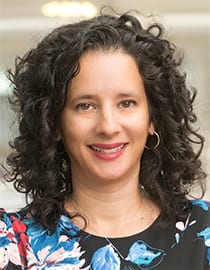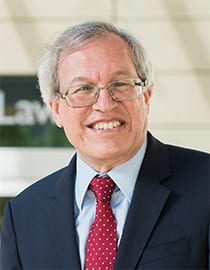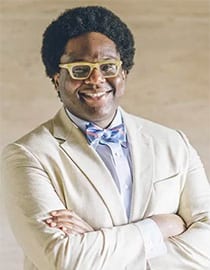 The tragic and horrifying killing of George Floyd by a Minneapolis police officer has again focused the country’s attention on the enormous problem of race and policing in the United States. Four professors—Roxanna Altholz, Khiara M. Bridges, Erwin Chemerinsky, and Osagie K. Obasogie—will discuss their work and thoughts on this topic of great significance.
The tragic and horrifying killing of George Floyd by a Minneapolis police officer has again focused the country’s attention on the enormous problem of race and policing in the United States. Four professors—Roxanna Altholz, Khiara M. Bridges, Erwin Chemerinsky, and Osagie K. Obasogie—will discuss their work and thoughts on this topic of great significance.
Date: Monday, June 8
Time: 12:50–2:00 p.m. (Pacific)
The Participants
Roxanna Altholz
Clinical Professor of Law | Co-Director, International Human Rights Law Clinic

Roxanna Altholz ’99 is an international human rights lawyer and scholar with extensive experience in international and national fora. Altholz has won several ground-breaking judgments from the Inter-American Court of Human Rights, provided expert testimony before UN human rights groups, and initiated legal actions on behalf of human rights victims in U.S. federal courts. She has also developed advocacy and research initiatives to address human rights violations suffered by immigrant communities in California’s Central Valley, to understand accountability mechanisms for private companies receiving international financing, and to improve the effectiveness of the Inter-American human rights system. Read more.
Khiara M. Bridges
Professor of Law, UC Berkeley School of Law

Khiara M. Bridges is a professor of law at UC Berkeley School of Law. She has written many articles concerning, race, class, reproductive rights, and the intersection of the three. Her scholarship has appeared or will soon appear in the Harvard Law Review, Stanford Law Review, the Columbia Law Review, the California Law Review, and the Virginia Law Review, among others. She is also the author of three books: Reproducing Race: An Ethnography of Pregnancy as a Site of Racialization (2011), The Poverty of Privacy Rights (2017), and Critical Race Theory: A Primer (2019). She is a coeditor of a reproductive justice book series that is published under the imprint of the University of California Press. Read more.
Erwin Chemerinsky
Dean, UC Berkeley School of Law | Jesse H. Choper Distinguished Professor of Law

Erwin Chemerinsky became the 13th Dean of Berkeley Law on July 1, 2017, when he joined the faculty as the Jesse H. Choper Distinguished Professor of Law. Prior to assuming this position, from 2008-2017, he was the founding Dean and Distinguished Professor of Law, and Raymond Pryke Professor of First Amendment Law, at University of California, Irvine School of Law, with a joint appointment in Political Science. Before that he was the Alston and Bird Professor of Law and Political Science at Duke University from 2004-2008, and from 1983-2004 was a professor at the University of Southern California Law School, including as the Sydney M. Irmas Professor of Public Interest Law, Legal Ethics, and Political Science. He also has taught at DePaul College of Law and UCLA Law School. He is the author of eleven books—including leading casebooks and treatises about constitutional law, criminal procedure, and federal jurisdiction—and the author of more than 200 law review articles. Read more.
Osagie K. Obasogie
Haas Distinguished Chair and Professor of Bioethics, Joint Medical Program, UC Berkeley School of Public Health

Osagie K. Obasogie is the Haas Distinguished Chair and Professor of Bioethics at the University of California, Berkeley, in the Joint Medical Program and School of Public Health. Obasogie’s scholarly interests include Constitutional law, bioethics, sociology of law, and reproductive and genetic technologies. His writings have spanned both academic and public audiences, with journal articles in venues such as Cornell Law Review (forthcoming), Law & Society Review, University of Pennsylvania Journal of Constitutional Law, Stanford Technology Law Review, and the Journal of Law, Medicine, and Ethics along with commentaries in outlets including the New York Times, The Atlantic, Slate, Los Angeles Times, Boston Globe, and New Scientist. His first book, Blinded By Sight: Seeing Race Through the Eyes of the Blind (Stanford University Press) was awarded the Herbert Jacob Book Prize by the Law and Society Association. Read more.
